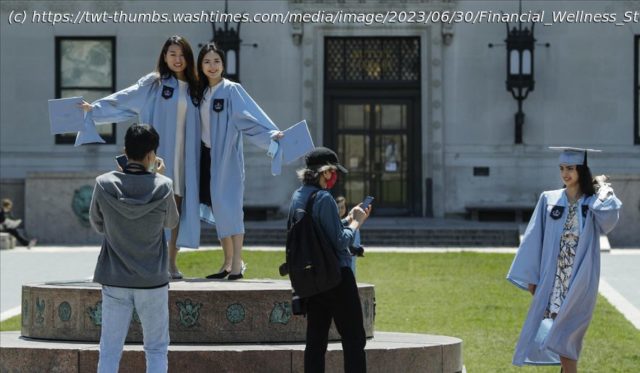Array
After three years, the pandemic-era freeze on federal student loan payments will end this fall and more than 40 million Americans will have to start making payments again under the terms of a debt ceiling deal approved by Congress.
Student loan interest will start accruing on September 1 and payments will restart in October. That means tough decisions for many borrowers, especially those in already-difficult financial situations.
It might seem tempting, come autumn, to just continue not making payments, but the consequences can be severe, including a hit to your credit score and exclusion from future aid and benefits.
Experts say that delinquency and bankruptcy should be options of last resort, and that deferment and forbearance – which pause payments, though interest may continue to accrue – are often better in the short term.
Once the moratorium ends, borrowers who can’t or don’t pay risk delinquency and eventually default. That can badly hurt your credit rating and make you ineligible for additional aid and government benefits.
If you’re struggling to pay, advisers first encourage you to check if you qualify for an income-driven repayment plan, which determines your payments by looking at your expenses. You can see whether you qualify by visiting the Federal Student Aid website. If you’ve worked for a government agency or a non-profit organization, you could also be eligible for the Public Service Loan Forgiveness Program, which forgives student debt after 10 years.
Carolina Rodriguez, Director of the Education Debt Consumer Assistance Program at the Community Service Society of New York, emphasizes that anyone temporarily unemployed should be able to qualify for a $0 payment plan. And many others qualify based on income and family size.
“The repercussions of falling into delinquency can be pretty severe,” Rodriguez said. “The federal government can administratively intercept tax refunds and garnish wages. And it can affect Social Security, retirement, and disability benefits. Does it make financial sense at that point? Probably not.”
Rodriguez says her organization always advises against deferment or forbearance except once a borrower has exhausted all other options. In the long term, those financial choices offer little benefit, as some loans will continue to accrue interest while deferred.
Abby Shafroth, senior attorney and director of the Student Loan Borrower Assistance Project at the National Consumer Law Center, said that, of the two, deferment is generally a better option.
That’s because interest generally does not accrue on Direct Subsidized Loans, the subsidized portion of Direct Consolidation Loans, Subsidized Federal Stafford Loans, the subsidized portion of FFEL Consolidation Loans, and Federal Perkins Loans. All other federal student loans that are deferred will continue to accrue interest.
Start
United States
USA — Science It’s almost time to resume student loan payments. What happens if you...






